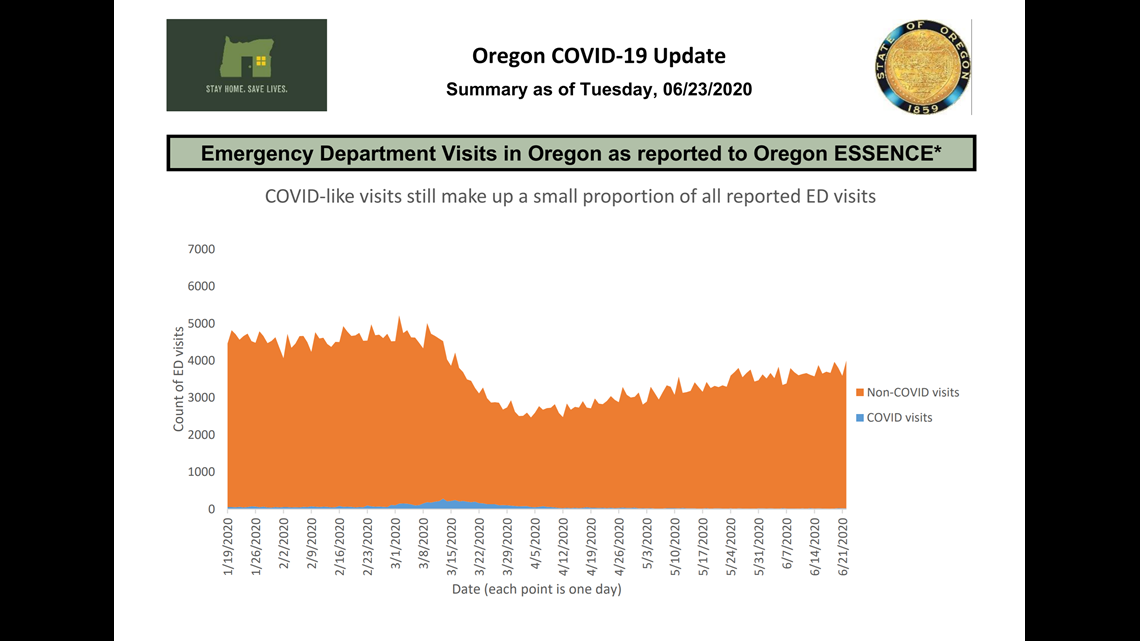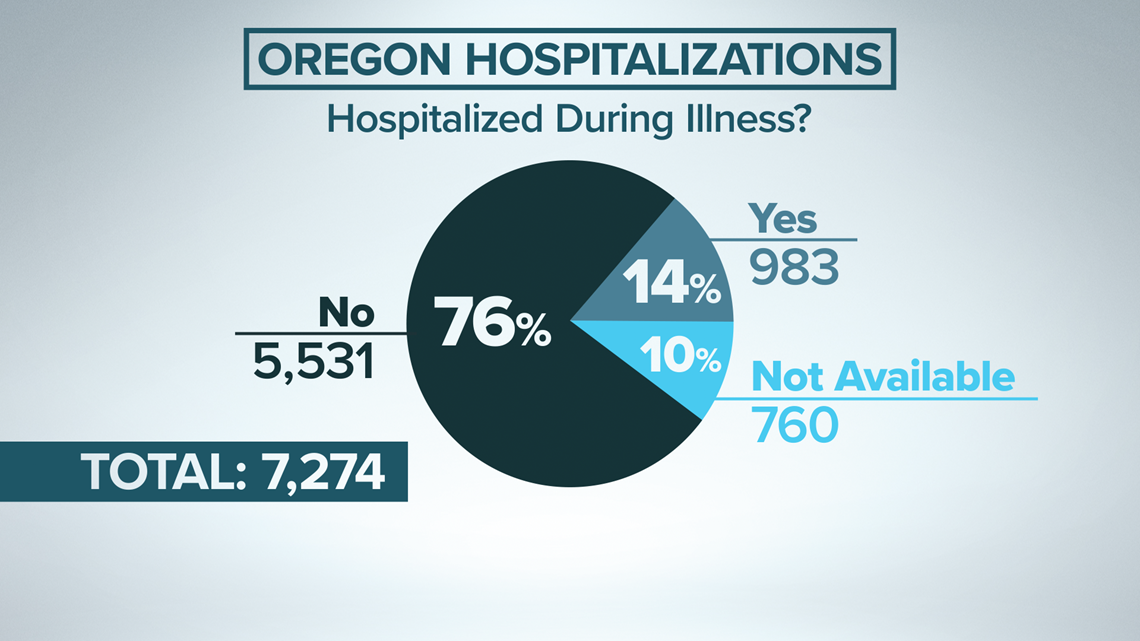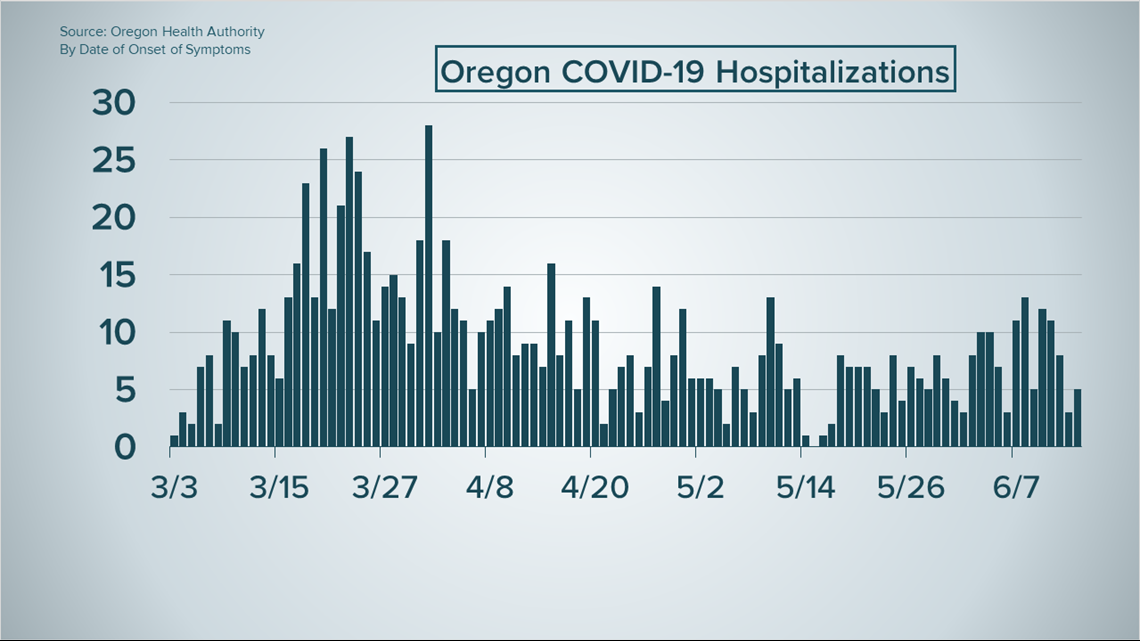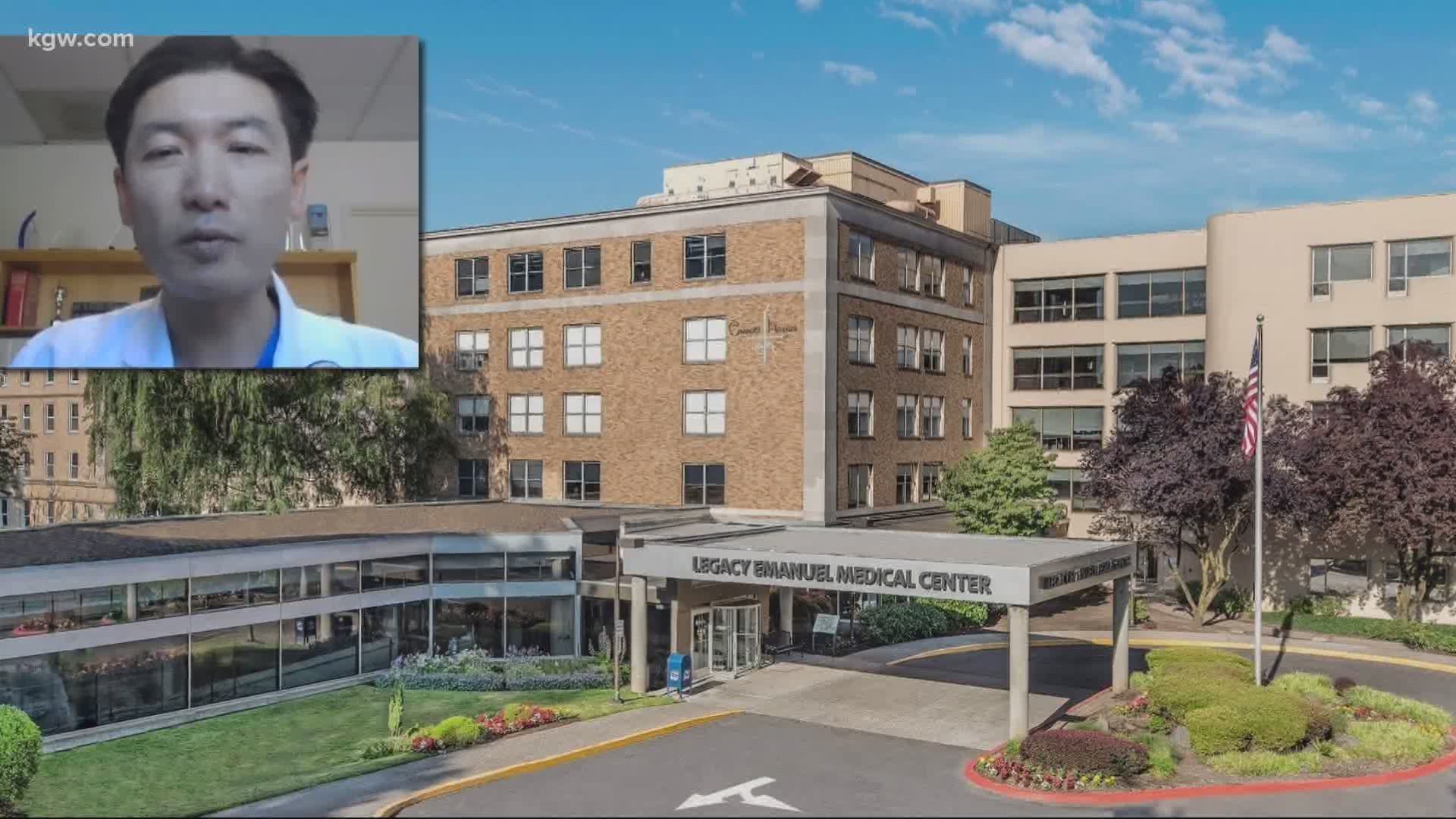PORTLAND, Ore — Medical experts around the country say as cases of coronavirus continue to rise, states like Oregon can expect a rise in hospitalizations.
Dr. Joseph Deng is a critical care doctor at Legacy Emanuel in Portland.
"It's really not that different, it's just extra busy," Deng said. "All the other non-COVID diseases are also being seen."
Deng said other emergency room visits and healthcare needs are rising, as more people become comfortable with safety measures at hospitals.
Oregon Health Authority reports the vast majority of ER visits are not related to COVID-19.


Medical expert Dr. Payal Kohli said about 19 percent of Americans infected with the virus end up needing treatment at the hospital.
OHA data show at least 14 percent of Oregonians with the virus become hospitalized, 76 percent of cases do not, and 10 percent of cases are unknown.


Kohli said most people who require hospital care are older or have other medical conditions, such as obesity, heart disease, chronic lung disease or diabetes.
She said coronavirus is tricky because it affects patients so differently: Some do not become very ill, while others fight for their lives.
"The body's immune response is a big driver," Kohli said.
In the most severe cases, that immune response can result in organ damage or blood clots.
Both Kohli and Deng said another common issue for hospitalized patients is low oxygen levels, requiring a ventilator.
The Ebola drug Remdesivir has shown promise as a treatment, shortening the duration of hospitalization for some patients.
As of Tuesday morning, 25 states had increasing coronavirus case numbers. Kohli said Oregon is one of them, and the state will likely see more hospitalizations in the next one to two weeks.


"It's kind of like our car is heading toward the edge of the cliff at a very rapid rate, and we know what's coming," Kohli said. "We know that more hospitalizations are coming, and we have to slow down the car and think about how we can prevent that from occurring."
But Deng said his team at Legacy Emanuel is prepared. His bigger concern is prevention at the community level.
"I do see folks who are young and healthy who still get very sick," Deng said.
While the world waits for a stronger treatment or vaccine, Deng urged Oregonians to wear masks, wash hands, and watch out for their vulnerable neighbors.
"We're here to take care of each other," Deng said. "And as long as we remember that, we can't lose."

